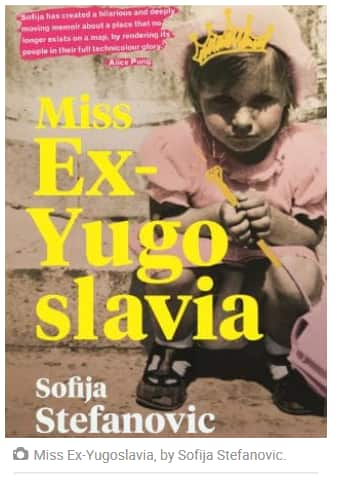Miss Ex-Yugoslavia is Stefanovic’s story. Part homage to her parents, part story of a woman coming to terms with her artistic self and mastering a language through which to create her art, and of bearing witness to those physically and psychologically affected by war, long after the tanks have rolled away.
In the opening scene of Sofija Stefanovic’s memoir Miss Ex-Yugoslavia, nine young women in miniskirts rub olive oil on each other’s thighs and slip rubbery inserts called chicken fillets inside their bikini tops to make their breasts look bigger. An oil-slicked Stefanovic (who is from Serbia) and her fellow ex-Yugo contestants, from Bosnia, Croatia, Macedonia, Montenegro and Slovenia, beautify themselves and each other in the dressing-room of Joy nightclub, a dubious Melbourne hot spot located above a fruit and vegetable market.
They are about to battle it out — or, more precisely, strut in synch to pumping turbo-folk music — for the title of Miss Ex-Yugoslavia 2005, beauty queen of a country that no longer exists. The audience? Ex-Yugoslavians from all sides of the war, including people driven out of their villages by ethnic cleansing, people bearing scars from the bombs that left more than 100,000 people dead and two million displaced, and Yugo-nostalgics who pine for Yugoslavia as it was before the wars of the 1990s.

Miss Ex-Yugoslavia is published last week by Penguin Random House.
Sofija Stefanovic appears on a panel at the Sydney Writers Festival on May 4 and 5.
May 5, 3-4pm, Carriageworks, Track 12,Angela Ledgerwood talks to SofijaStefanovic about Miss Ex-Yugoslavia, amoving and hilarious memoir tracing the Stefanovic family’s journey betweenBelgrade and Melbourne. Free, no bookings
